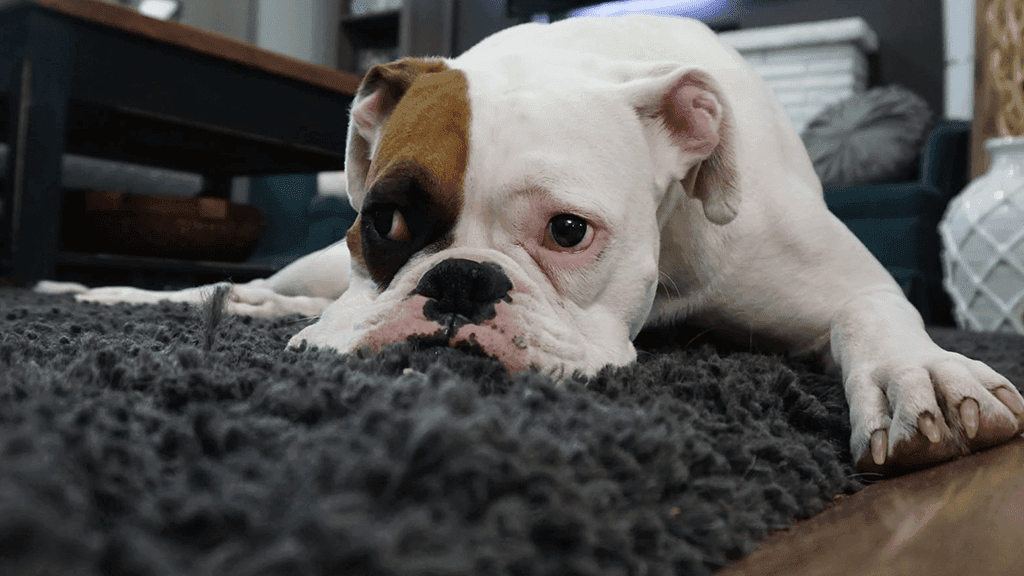Why is my dog having diarrhea? Is it serious? Do I need to seek emergency care?
Diarrhea in canines is common. It can vary in severity, frequency, and duration.
There are different causes of severe diarrhea in dogs. If left untreated, diarrhea leads to dehydration and more serious health issues.
If your dog has sudden diarrhea, don’t panic. It is not a medical emergency in most cases. Let’s discuss sudden diarrhea in dogs, common causes, treatment options and steps to cure it at home.
What causes diarrhea in dogs?
There are a number of reasons why dogs might develop diarrhea, including sudden changes in diet, stress, eating too much or not enough food, and underlying medical conditions.
Common causes
There are many reasons diarrhea can occur. Some of the most common causes of sudden diarrhea in dogs include:
Eating something they shouldn’t have – This could be anything from spoiled food and table scraps to any food that isn’t meant for canine consumption.
Sudden changes in diet – If you’ve recently changed your dog’s food or introduced a new type of doggie treat, this could be the cause of their upset stomach.
Infections from bacteria or parasites – These can range from mild to serious and require immediate veterinary attention.
Stressful situations – Loud noises, unfamiliar environments, or even anxiety caused by being around strangers.
Lesser-known common causes:
Food intolerance
Illnesses (for instance, cancer, kidney or liver disease, Pancreatitis)
Intestinal blockage
Reaction to antibiotics or other medications
When is diarrhea a medical emergency for your dog? And when should you bring your dog to a vet?
If your dog has sudden, watery diarrhea that lasts for more than a day or two, it’s important to take them to the veterinarian. If your dog has diarrhea every hour, this is also an indicator to bring them to a veterinarian. Dehydration is a common and dangerous side effect of diarrhea, and can quickly become life-threatening if left untreated.
Signs & symptoms
In addition to watery diarrhea and dehydration, here are some other signs your dog may need medical attention:
Lethargy
Lack of appetite
Pale gums
Excessive thirst
If your dog is exhibiting any of these symptoms, please contact your veterinarian immediately – even if their diarrhea seems mild. Depending on the underlying cause, there may be treatments available that don’t require hospitalization. Some serious health conditions necessitate immediate veterinary care.
At-home treatments for diarrhea in dogs
Never give your dog medications intended for humans without consulting your veterinarian. Some human medications can be toxic to dogs. Talk with your vet about dog diarrhea medication if you have any doubts or questions.
How dog parents can treat diarrhea
When it comes to treatment for diarrhea in dogs, take some basic actions like resting, fasting, and drinking water. Here are six of the best ways to treat diarrhea at home:
Make sure they’re drinking plenty of fluids – This is especially important if your dog is showing symptoms of dehydration, such as excessive thirst or lethargy. You can give them water, broth or ice cubes made from rehydration drinks like Pedialyte.
Feed them a bland diet – If your dog’s stomach is upset, it might be best to stick to bland foods until they start feeling better. Boil white rice and chicken (or any other lean meat) without seasoning until the chicken is cooked through. Allow the food to cool before giving it to your dog. Do this for a few days and slowly transition back to a normal diet.
Withhold food for 12-24 hours – When treating dog diarrhea, fasting will allow their gastrointestinal tract to recover. Be sure to provide small amounts of water to give their stomach a chance to settle.
Feed them specially-formulated dog foods for sensitive stomachs. These foods are specially formulated for digestion and gut health in dogs, and typically include prebiotics, probiotics, as well as proteins, fats, and carbs.
Dog-safe fiber supplements – Not only is fiber an important part of your dog’s diet, it helps treat diarrhea. If you know your dog will be facing a stressful situation, you can feed them a dog-safe fiber supplement a few days before the event to prevent diarrhea
Feed them pumpkin – Pumpkin is a great treatment for diarrhea in dogs because it is a great source of fiber, which adds bulk to your dog’s stool by absorbing water. Look for pet-specific canned pumpkin.
In Closing
Diarrhea is common with dogs, though it can vary in frequency, duration, and severity. Many causes of diarrhea are not necessarily medical emergencies. There is a multitude of at-home treatment options that will have your dog back to normal soon. If your dog exhibits signs of dehydration, fatigue, or any of the other signs or symptoms listed in this article, contact your veterinarian immediately.
Knowing the causes and risk factors of diarrhea in dogs will help your entire family to be more comfortable. Spot offers dog insurance plans with accident and illness coverage in case your dog ingests something they shouldn’t have, so you can fret less if you find yourself having to call the emergency vet for a visit.
